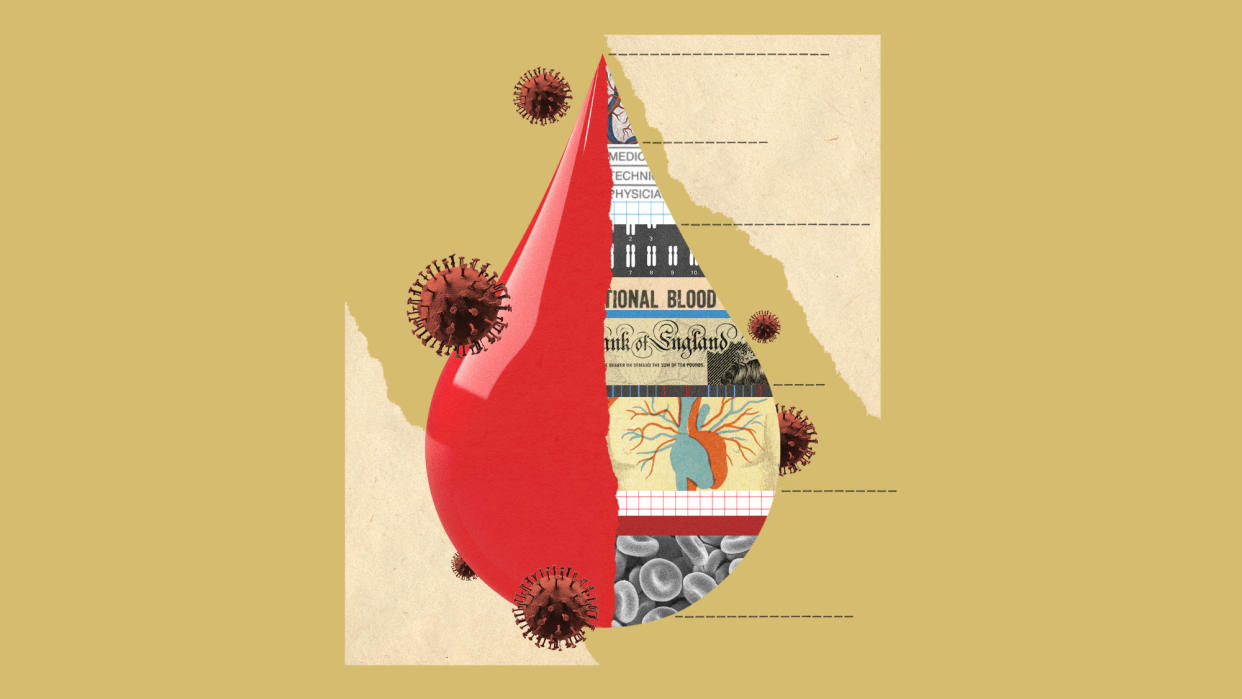A 'transformative' gene therapy for haemophilia B

The NHS can now offer patients with a rare blood disorder a "transformative" new treatment after the UK's medicines watchdog gave its funding the green light.
Around 200 people with haemophilia B will be eligible for the gene therapy, which helps their body produce blood-clotting factors and "frees" them from regular treatments, said Bloomberg.
What is haemophilia B?
This genetic disorder is much rarer than haemophilia A, said Great Ormond Street Hospital (GOSH). Around 2,000 people in the UK have the condition.
Due to a mutation in their DNA, patients with haemophilia B either can't produce enough of factor IX – a specific protein that makes blood clot – or lack it entirely. "Without this crucial clotting component, bleeds are bigger and longer," said the BBC.
Treating haemophilia B requires constant care and monitoring. As a preventative course of treatment, people with the blood disorder receive weekly injections of factor IX to enable their blood to coagulate, said GOSH. On-demand injections are also administered if a patient injures themselves or undergoes surgery.
How does this gene therapy work?
The drug, Hemgenix, has been found to have long-term benefits for those with the condition. Clinical trials began in 2019, with 54 male patients from the US, EU and UK taking part. Then the gene therapy was "still just an experimental idea", said the BBC.
The therapy is administered as a "one-off infusion, lasting about an hour". Patients receive "engineered viruses" with "copies of the fully functional factor IX instructions". The viruses then "act like a fleet of microscopic postmen, delivering those blueprints to the liver". The organ is then able to follow the instructions to produce the clotting protein.
What impact will the treatment have?
NHS England's national medical director Professor Stephen Powis described the therapy as "transformative". Its impact, he said, could be "truly life-changing".
Five years after being part of the clinical trial, Elliott Collins, 34, told the BBC: "I feel cured." Before, "I would have to think about it all the time". Now, "for it to completely disappear", it's changed me "mentally and physically".
The therapy may not prove as effective for all patients, however. Of the 54 men who took part in the clinical trial, two continued to need factor IX injections. "And nobody knows how long it will last." Some research has suggested it could be more than 10 years.
The therapy is also "not considered a true 'cure'", said the BBC, as it won't stop people with the disorder from passing it on genetically.
What's the price tag?
The gene therapy comes at a hefty cost: £2.6 million, making it "one of the world's most expensive" treatments. "England's thrifty drug-cost regulator" (the National Institute for Health and Care Excellence, or Nice) has endorsed the investment for "a limited period" while the drug's efficacy "remains under scrutiny", said Bloomberg.
The financial "deal" between the manufacturer CSL Behring, NHS England and Nice is "bound up in confidentiality agreements", said the BBC, but it is "essentially a performance-related pay for drugs", the "first such deal" that the health service has struck.
Now that its funding has been approved, the therapy will be made available at centres in London, Manchester, Leeds, Bristol, Cambridge, Birmingham and Oxford.


